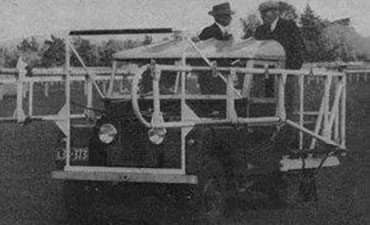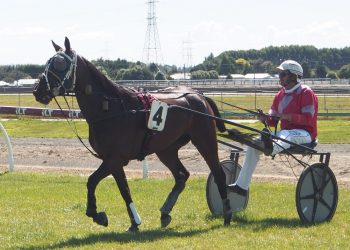Ross Corrigan, who helped build and then drive the country’s first ever “mobile”, will be farewelled in Hawera today.
 A hugely respected and popular figure especially in South Taranaki, Ross Corrigan died at the Base Hospital on Thursday, July 25, aged 88 years. He was many things – a farmer, an historian, the patron of the Egmont A&P Association as well as at the Egmont Sheepdog Trial Club, and a keen follower of harness racing, and a breeder and owner.
A hugely respected and popular figure especially in South Taranaki, Ross Corrigan died at the Base Hospital on Thursday, July 25, aged 88 years. He was many things – a farmer, an historian, the patron of the Egmont A&P Association as well as at the Egmont Sheepdog Trial Club, and a keen follower of harness racing, and a breeder and owner.
Among those sending their condolences to the Corrigan family has been the Hawera Harness Racing Club with President Fred Mitchell saying : “We are extremely grateful for all his help and expertise he has shared with the club over many years. Thinking of you all.”
From a harness racing perspective the Corrigans’ influence has been immense as they were responsible for introducing mobile racing to this country.
In the late 1950s Ross’ father Alex – an owner, trainer and executive member of the New Zealand Trotting Conference – had visited the United States and came home singing the praises of the mobile starts he’d seen there.
Despite by the Conference’s lack of enthusiasm, “The Boss” as Corrigan senior was known, decided to go it alone.
With help from Ross Corrigan and others, the country’s first ever mobile vehicle, complete with barrier arms, was built. A 10 metre (35 foot) barrier was constructed at a garage in Hawera and mounted onto a Landrover.
On April 23, 1957, with Ross Corrigan doing the driving, the first mobile start race in the Southern Hemisphere was run at Hawera. At the time Ross Corrigan was 21.
According to news reports at the time there was a round of applause when the first ever field was sent off without a hitch.
There were 10 starters with the race won by Ben Grice’s Brahman driven by Ces Donald, with Alex Corrigan’s own horse Earl Marie, driven by Doug Grantham, second. Other drivers involved included legends such as Roy Purdon and Derek Jones.
Invitations from other clubs followed and Ross Corrigan built a larger set of arms that were hydraulically operated. A new Landrover was acquired with its motor boosted with the addition of a Maserati supercharger and twin V8 carburettors!
The modifications were needed to make the Landrover fast enough to get away from the likes of Caduceus, False Step and Lookaway.
Over the next three years the Corrigans took their mobile starting barrier at no charge to meetings right around the country.
The Land Rover was seen in action at venues as diverse as Addington, Stratford, Waikato, Cambridge, Pukekohe, New Brighton and Tauranga. In all 84 starts were made, with no false starts recorded.
The whole exercise cost the Corrigans a small fortune but they had proved their point.
But it was not universally accepted – far from it. There were a lot of detractors. At one point it seemed the Corrigans felt they were fighting a losing battle but they found an important ally.
The Canterbury Park Trotting Club responded to many requests from horsemen who had seen the mobile in action in America and with president Les Smart as its most ardent advocate, a new mobile gate was constructed. The gate was first used at the Canterbury Park’s winter meeting on May 26, 1962 and the honour of winning the first race went to Doody Townley driving Carina Star.
The Corrigans were clearly ahead of their time and their vision and determination has certainly left its mark.
In the last season mobile starts accounted for 64 per cent of all races.
A service for Ross Corrigan will be held at St John’s Presbyterian Church, High Street, Hawera, on Wednesday July 31, from 1.00pm.

 USA
USA Canada
Canada Australia
Australia New Zealand
New Zealand Europe
Europe UK / IRE
UK / IRE



